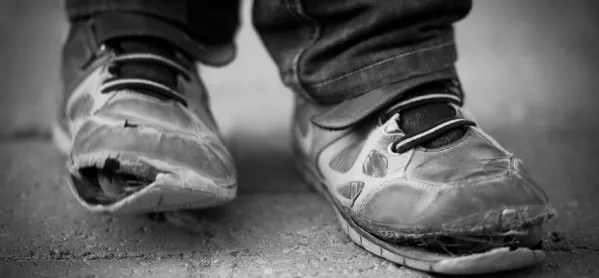“Children do make choices to misbehave,” states professor Essi Viding, “but the tools they bring to make the choices are different. Someone who has very stable developmental history is making a particular choice with a completely different toolkit than a child who has an unpredictable developmental history.”
Viding is professor of Developmental Psychopathology at University College London (UCL) and, together with Eamon McCrory, professor of developmental neuroscience and psychopathology at UCL, she studies the effects of trauma on a child’s behaviour, at the Developmental Risk and Resilience Unit. Speaking on this week’s Podagogy podcast, they explain how trauma affects development, how this affects behaviour and what teachers can - and should - do about it.
“The impact of trauma and early adversity - we want to understand how those experiences develop the brain,” explains McCrory.
“The impact of adversity forces the child to adapt in ways that will help them cope in an environment that is chaotic or unpredictable and those adaptations occur in autobiographical memory functioning, their threat-processing, their reward-processing - these systems calibrate to protect the child in that environment. But once they move into a school environment, then those adaptations can cause problems.”
Adaptations to environment
He cites the example of a child who has become hypervigilant to survive in a violent household. In a school environment, this can mean the child overestimates threat and this can lead to disruptive behaviour, a tendency towards physical violence and an inability to form social bonds.
To a teacher, this behaviour may just appear to be a child playing up, he says, but it “may simply be a spill-over of the adaptation to their environment in which they live. Ill intent can be perceived in the child when they are just acting how they have learned to survive.”
This is not the fault of teachers. Viding stresses that teachers will not have had the training to be able to support students who have experienced trauma. And she suggests that, actually, a mainstream school may not always be the right place for these students.
“I think even if you are a teacher informed about how trauma can impact a child, there is still a real challenge because you have to teach a class of 30 - there are 29 other children with needs,” she says.
“Increasingly, because of the cuts to social welfare and care, and because of the inadequate state of clinical services for children, schools are left to deal with a host of social and mental health problems that they are quite understandably not equipped to deal with and it is not their place to deal with.
“They are there to educate the children and try to do so in an environment where children have the peace to sit down and learn. I do not think it is reasonable to expect a classroom teacher to deal with a child’s very complex needs.”
Different approach
This is not to suggest that children who have experienced severe trauma and who present with challenging behaviour should be excluded from mainstream education. Rather, Viding believes we need a more flexible relationship between specialist provision and mainstream provision.
“There is a reality here: you cannot scupper education for 29 children because there is one child unable to engage with mainstream education,” she says. “The aim ought to be that, yes, this child should have specialist provision, but with the view that they can be reintegrated into the mainstream provision. At the moment that is very difficult in the British school system.”
Both stress, too, that we should not see trauma as having “damaged” the brain, or that trauma causes irreversible changes.
“It is important not to over-interpret this, to see it as brain damage,” says McCrory. “What we are seeing is that these changes are adaptive…and there is no reason these systems cannot recalibrate. A new set of environmental experiences can lead to new calibrations. Plasticity continues into early adulthood.”
Genetic influence
In the podcast, they go on to talk about genetic factors in reactions to trauma; behaviour-management approaches best suited to children who have experienced trauma; and they also describe a group of children who present as if they have experienced trauma, but who are actually genetically at risk of callous emotional traits.
You can listen below or search for ”Tes the education podcast” on your podcast platform.





